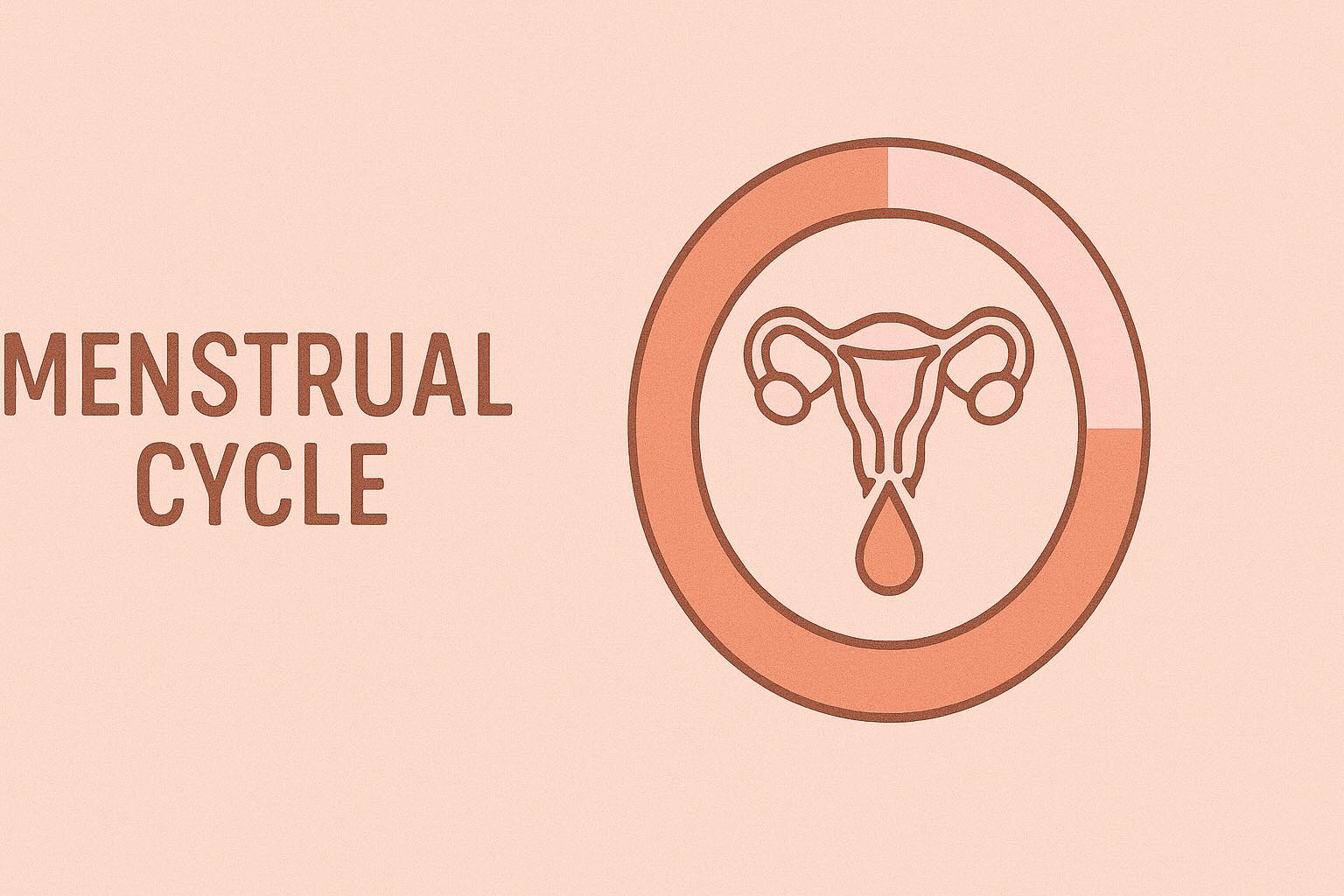
Understanding Your Menstrual Cycle: The Key to Reproductive Health
Today, we're diving into an essential topic for every woman’s health journey: understanding the menstrual cycle. Gaining insight into your cycle not only improves reproductive health but also helps you recognize patterns that can impact overall well-being. Here’s what we’ll cover:
- The Phases of the Menstrual Cycle and Their Significance
- Common Menstrual Disorders and Their Impact on Health (with brief mentions and definitions as each topic warrants its own focus)
- How Menstrual Health is Linked to Overall Reproductive Health
- Tips for Tracking Your Cycle and Recognizing Patterns
- Understanding Your Menstrual Cycle: The Key to Reproductive Health
In this post, we’ll cover:Whether you’re just starting your menstrual journey or navigating perimenopause, knowing how your cycle works is essential for maintaining reproductive health. By exploring the different phases of your cycle, recognizing common disorders, and learning how to track your cycle, you can gain valuable insights into your body and make informed decisions about your health.
- 1• The phases of the menstrual cycle and their significance
- 2• Common menstrual disorders and their impact on health
- 3• The connection between menstrual health and overall reproductive health
- 4• Practical tips for tracking your cycle and recognizing pattern
By understanding your menstrual cycle, you’ll be better equipped to manage your health and recognize any changes that may need attention. Menses Involve Multiple Organs: The brain, ovaries, uterus, and the vagina (the external birth canal) all play a crucial role in your menstrual cycle. For everything to function smoothly, these organs must communicate effectively, which sometimes isn’t the case during adolescence or perimenopause, leading to irregularities.
What Is Menstruation?
Menstruation, or your period, is the shedding of the uterine lining through the vagina. It typically begins at puberty and continues until menopause.
Why Does Menstruation Happen?
Hormonal fluctuations during the menstrual cycle cause the uterine lining to thicken, ovulation to occur, and if fertilization doesn’t happen, the lining is shed as menstrual blood.
How Often Should You Get Your Period?
Cycles usually range from 24 to 38 days, with menstruation lasting from a few days to about a week. Irregularities are common when menstruation begins and can occur when transitioning into perimenopause.
Is My Cycle Regular?
It’s important to know that menstrual cycles can vary in length month to month and still be considered regular. A cycle that falls within the 24-38 day range is generally normal.
What Symptoms Can Occur During Menstruation?
- Acne
- Bloating
- Breast soreness
- Cramps
- Diarrhea
- Food cravings
- Fatigue
- Headaches
- Mood changes
- Nausea
- Sleep disturbances
- Difficulty concentrating
In more severe cases, symptoms like these can develop into Premenstrual Syndrome (PMS) or even Premenstrual Dysphoric Disorder (PMDD), which might require professional management.
What Affects My Period?
Several factors can influence menstrual regularity, including:- Pregnancy
- Breastfeeding
- Intense exercise, stress, or weight changes
- Health conditions like polycystic ovary syndrome (PCOS)
- Certain medications (including hormonal birth control)
- Menopause
Menstrual Products: What Are the Options?
Choose from a variety of menstrual products:- Pads
- Tampons (change every 4-8 hours to avoid infection)
- Menstrual cups/discs (reusable and worn up to 12 hours)
- Period underwear/swimwear (washable and reusable)
Experiment to find what works best for you.
Self-Care During Your Period
- Maintain normal activities (it’s okay to keep going with your routine)
- Diet: Avoid salty foods and large meals to reduce bloating.
- Pain relief: Over-the-counter NSAIDs like ibuprofen can help.
- Heat therapy: A heating pad on your lower abdomen can alleviate cramps.
- Exercise: Regular physical activity helps improve mood and health.
- Stress management: Practices like yoga or meditation can be calming.
Common Menstrual Disorders
Some disorders can affect menstrual health and overall well-being:- Heavy Menstrual Bleeding (Menorrhagia): Prolonged or excessive bleeding can cause anemia and fatigue.
- Irregular Periods: Cycles that vary significantly in length may suggest hormonal imbalances or PCOS.
- Frequent Menses: Periods occurring more often than every 24 days could signal hormonal issues.
- Prolonged Menses: Periods lasting over 8 days can lead to fatigue and may require medical attention.
- Painful Menstruation (Dysmenorrhea): Severe cramps can disrupt daily activities.
- Premenstrual Syndrome (PMS): Symptoms before your period can affect your mood and productivity.
- Amenorrhea: Missing periods could indicate underlying health problems.
- Uterine Growths: Conditions like fibroids or polyps can cause pain and heavy bleeding.
- Bleeding Disorders: Conditions like von Willebrand disease can increase bleeding.
How Menstrual Health Relates to Overall Reproductive Health
Your menstrual cycle is a window into your reproductive health. Regular cycles typically indicate hormonal balance and proper functioning of reproductive organs. For those trying to conceive or prevent pregnancy, understanding your cycle is key to making informed choices about fertility and contraception. It also helps detect health issues early, allowing for better treatment outcomes.
Tips for Tracking Your Cycle
- Use a Calendar or App: Track the first day of your period and cycle length to predict upcoming periods.
- Note Symptoms: Record any physical or emotional symptoms, like cramps or mood swings.
- Track Changes: If you notice changes in your cycle (such as missed or prolonged periods), discuss them with your healthcare provider.
Food and Nutrition Through the Cycle
- Menstrual Phase: Focus on iron-rich foods to combat fatigue and replenish nutrients.
- Follicular Phase: As energy increases, eat nutrient-dense foods to boost metabolism.
- Ovulation Phase: Zinc and antioxidants support hormone production and immune function.
- Luteal Phase: Manage PMS symptoms with complex carbs, healthy fats, and magnesium-rich foods.
Menstrual Cycles Syncing
There’s a popular belief that women living together will have synchronized cycles. While fascinating, research shows that syncing cycles is more complex than we might think—like trying to schedule a group outing! Everyone's cycle is unique. Understanding your menstrual health is empowering. By tracking your cycle and recognizing patterns, you can take charge of your health and well-being.






Curious Woman Reply
When to Consult a Doctor?
Doctor Reply
If you're over 15 and haven't started your period. If you miss periods for more than 3 months. If your cycle changes drastically. If you're soaking through a pad or tampon every 1-2 hours. If you pass large blood clots. If symptoms disrupt your daily life. If you suspect pregnancy.